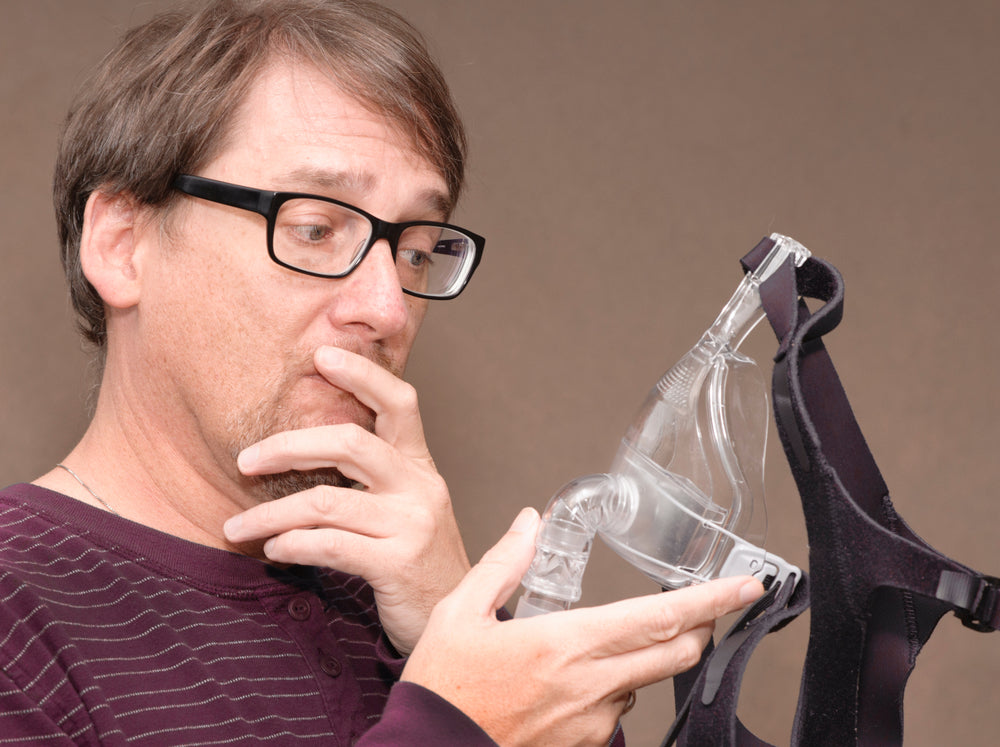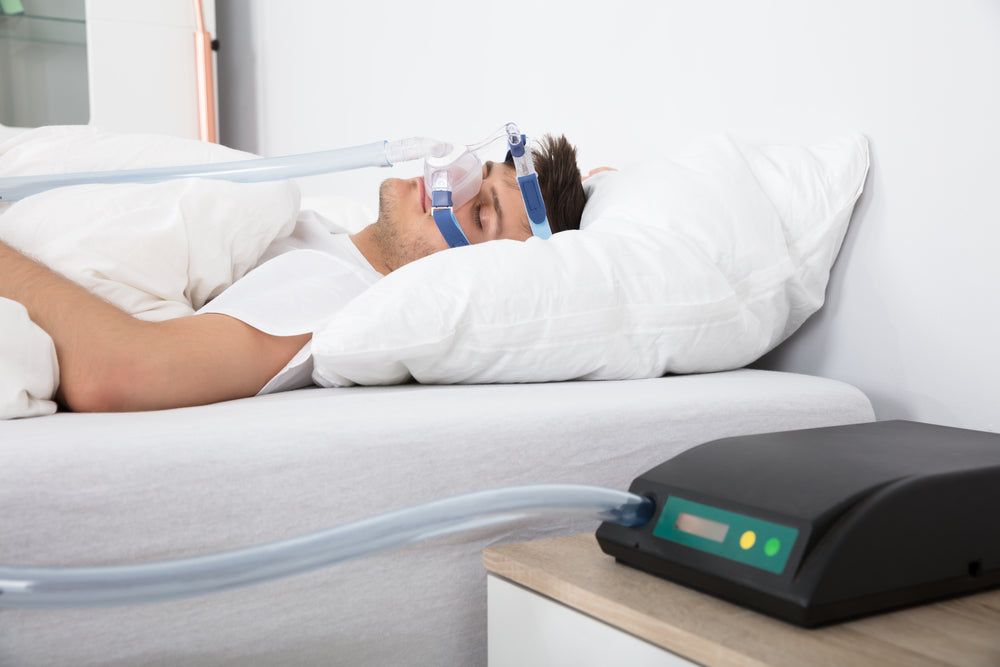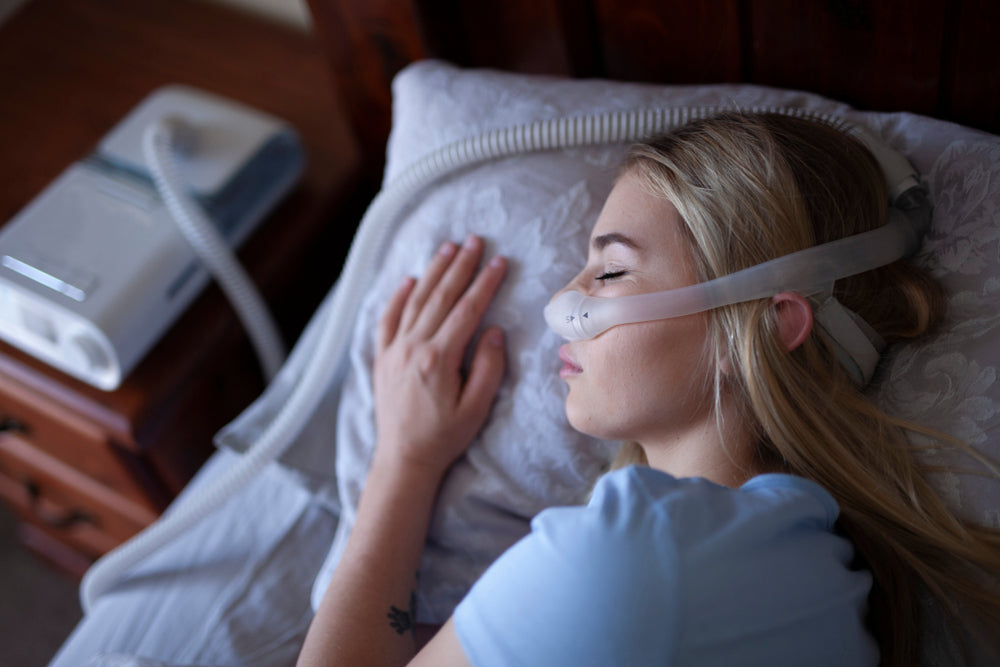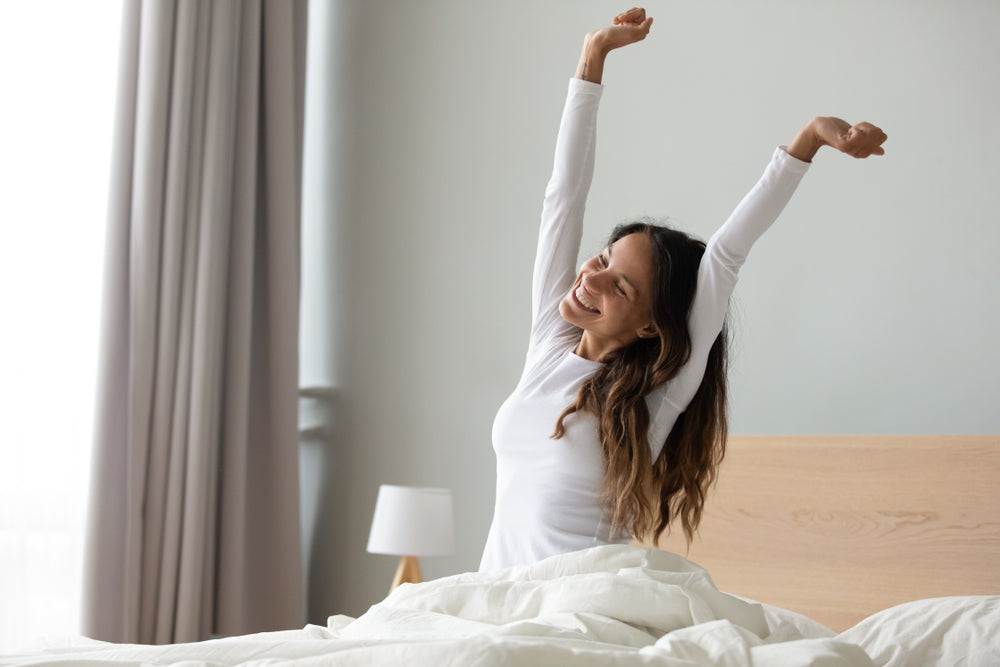I can't get to sleep with my CPAP machine on - tips and tricks to making the most of your sleep therapy
Have you just started CPAP therapy and are having a little trouble adjusting to your new routine? Or are you reconsidering CPAP after having a bad run earlier down the track but hoping to find a more comfortable option?
In our years of industry experience, we have heard the same story over and over of a patient with obstructive sleep apnea or another sleep disorder who had tried CPAP therapy before and had a hard time. Then they later tried with a new machine and had a much easier adjustment.
This can be for many reasons, including finding the right CPAP machine for you and ensuring all your equipment fits correctly —particularly your mask. CPAP is a very personalised, tailored form of therapy; it isn't a one-shoe-fits-all solution. Sometimes finding the correct settings for you can be exhausting, resulting in sleepless nights. However, while there are different options if CPAP just isn't for you, CPAP therapy is the most effective and common therapy for preventing the negative health outcomes associated with sleep apnea. Untreated sleep apnea increases the risk of these common problems such as heart attacks, strokes and diabetes.
So before giving up altogether, we recommend ensuring you do all you can to find a comfortable solution with your CPAP machine. So, read on to hear our tips and tricks for getting a restful night's sleep with your CPAP device.
Make sure you have the right mask
The treatment may not be effective if the CPAP mask does not fit properly. This is a common culprit for CPAP discomfort. A wide range of different masks are available, both in style and size. There are nasal masks that can go either over or under your nose, full-face masks that fit over your mouth and nose, nasal pillows, headgear and other options. It's preferable that you can try different options before committing to a mask for your therapy. CPAP therapy is a lifelong treatment; you will wear the mask night after night, so it's essential to get it right.
Adjust the pressure
As CPAP therapy is a highly personalised treatment, different people have different pressure needs. The pressure required can depend on factors such as weight, allergies, sleeping position if you smoke or not or the severity of your sleep apnea. If you are having trouble with the pressure, you may need to change it to better suit your needs (under the advice of a sleep specialist – it's not advised to make these changes yourself). If you are new to CPAP therapy, it's best to take a sleep test to get an idea of the pressure you will require.
Try a different machine
Although CPAP (continuous positive airway pressure) is the most common treatment for obstructive sleep apnea, two more sleep apnea treatment machines are available — APAP and BiPAP. While CPAP offers continuous air pressure, the other two options differ in air delivery. BiPAP (bilevel positive airway pressure) offers two settings — one for the inhale and one for the exhale, which some people find easier to adjust to than CPAP. The APAP machine (automatic positive airway pressure) adjusts the pressure depending on your input, monitoring your breathing patterns and applying the minimum needed pressure to keep your airway open. This can feel more natural for some users, allowing the pressure to be on a low setting while they fall asleep.
Consider innovative/additional CPAP add-ons
CPAP continues to involve as a treatment, and there are now many new advancements that can improve the comfort of CPAP treatment. Some of these options include:
- Heated humidifiers, which can help with dry mouth and nasal dryness
- Mask liners which can decrease skin irritation
- Using the ramp feature on your machine, which allows for the pressure to start lower
Create a relaxing space for sleep
Creating a relaxing environment that makes falling asleep more comfortable is important no matter the circumstances, but it's particularly useful if you struggle to sleep with your CPAP device. So take the time to set up your space to provide comfort and relaxation so you can associate your bedroom with somewhere you want to be. Consider investing in comfortable pillows and bedding, aromatherapy or blackout shades. Additionally, many phone apps offer sleep meditation and stories that can help get you in the right mindset for a better night's sleep.
Alternatives to CPAP
If all else fails, there are some alternatives to CPAP. The main two alternatives to CPAP are lifestyle changes and surgery. There is no doubt that lifestyle changes can improve CPAP symptoms, but except for mild cases, they are usually insufficient for a complete cure. Surgery is an individually tailored process. For some people, the shape of their anatomy may be able to be surgically adjusted to prevent sleep apnea or to improve the tolerability of CPAP. However, this is to be determined with a surgeon on a case-by-case basis.
Our advice
Our professional advice is to make sure you have done everything possible to make CPAP a more comfortable experience before looking into alternatives. CPAP is the most effective treatment for CPAP; it can prevent negative health effects associated with sleep apnea. It also helps you get back to having a normal night's sleep. If you are uncomfortable with your CPAP device, we recommend not giving up. If you want to talk with a sleep expert to help troubleshoot your CPAP tolerance, call us on 1300 613 999 today. We will assist you in getting a good night's sleep.


